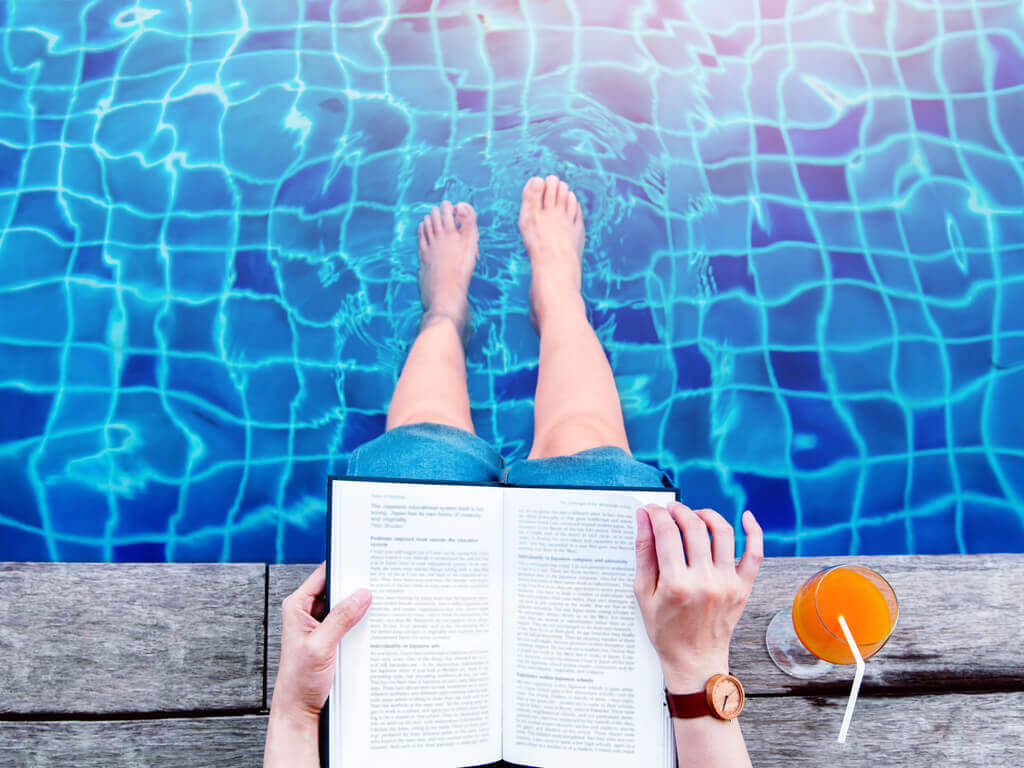Pool Glossary for Beginners

Keeping up with the maintenance of your swimming pool is essential to ensuring that it lasts for years to come. So, why not learn about the most important terms used in swimming pool lingo? Check out this pool glossary of terms that our pool professionals believe every pool owner should know.
Pool Glossary Terms
- Acid Demand – This refers to the acid needed to lower the pH of the pool water to bring it back down to normal levels, around 7 to 7.5 pH.
- Alkaline – Alkaline water has a pH of higher than 8; normal drinking water is generally right around 7. This type of water is the opposite of acidic water, which usually has a pH of 4.5 or lower.
- Backfill – The process of replacing/repositioning the soil after the installation of a swimming pool.
- Base Demand – The opposite of acid demand, this refers to the base needed to raise pH levels to where they should be.
- Chlorinator – A device, either electrical or mechanical, that disperses chlorine as needed.
- Coping – The piece of concrete, or other material that extends around the length of an inground swimming pool’s edge. It helps prevent water from spilling in between the pool shell and the ground. It is often one foot wide.
- Electrolysis – The process that saltwater pools use to create chlorine from salt. Electrolysis also causes staining and corrosion in the pool as it negatively affects metal in a saltwater environment if not properly maintained.
- Fiberglass – A type of inground pool that is made out of woven fibers. There are several layers of a fiberglass pool and not all of them are fiberglass. Other materials used in the construction of a fiberglass pool included steel, wood, and gel coating.
- Hardness – A water’s hardness refers to the amount of calcium and magnesium dissolved in it. Having water that is too hard can lead to a calcium buildup on surfaces of your pool.
- Hydrojet – A type of water return line in a pool or spa that disperses a mixture of air and water, leading to a continuous turbulent stream.
- Impeller – This fan-like device within the swimming pool pump helps create the flow of water necessary for the filtration process.
- Lifeline – A rope that separates the deep end of a pool from the shallow end of a pool; it usually has small floating spheres evenly spaced across it.
- Neutralizer – This substance helps make chlorine and bromine swimmer-friendly.
- Pump – A mechanical device that is powered by a motor that creates pressure and promotes water flow in order to properly filter, heat, and circulate pool water.
- PSI – Pounds per square inch.
- Reagent – When testing your pool’s water balance, these are used to indicator certain conditions such as the pH levels.
- Soft Water – The opposite of hard water, this is when the pool’s water does not have an adequate amount of calcium or magnesium. Pool water should never be soft.
- Winterizing – A process that must be done to pools, spas, etc, in cold weather seasons to prevent damage from freezing water.
Let the Pool Professionals Help
When it comes to caring for your pool, you should have a professional leading the way. If you need a new liner, your summer chemicals, or even a brand new pool, contact Aqua Leisure Pools and Spas, the Wyoming Valley’s leading pool provider, today.
Posted by Aqua Leisure Pools & Spas in Pools

